‘Hajime No Ippo’ Mangaka George Morikawa Speaks Out Against Adaptations Making Changes To Source Material: “The Author Is Absolute”

In the wake of Sexy Tanako-san mangaka Hinako Ashihara’s death, Hajime no Ippo mangaka George Morikawa has revealed that the ‘source material respect’ issues she was dealing with in the months leading up to her passing are far from rare, as he went through a similar situation with the anime and stage adaptations of his iconic boxing manga.
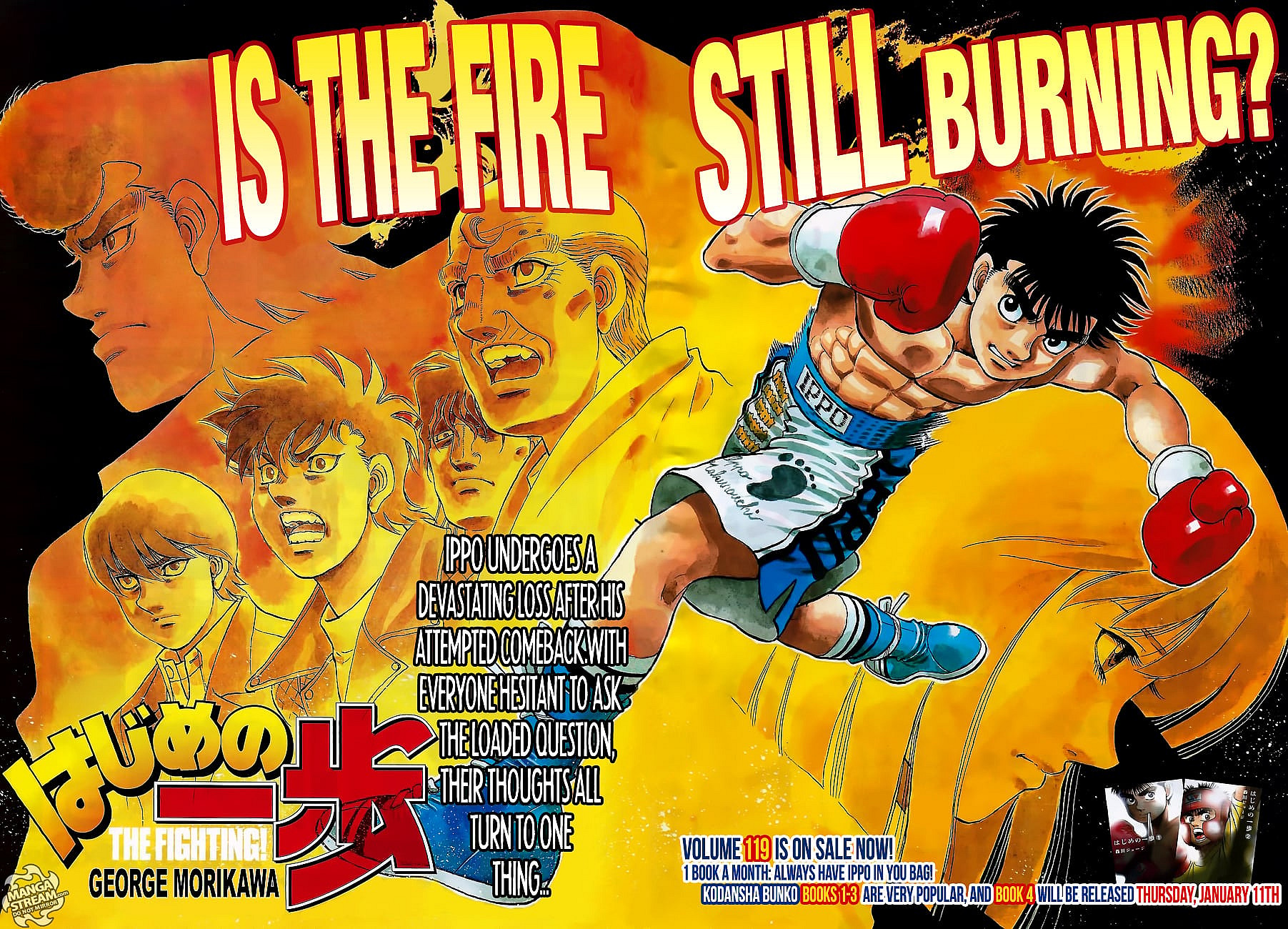
In the days prior to her death, Ashihara had opened up about the frustrating and traumatic experience she had in dealing with the producers of Nippon TV’s live-action Sexy Tanaka-san series, particularly in regards to their blatant breaking of a promise to not modify the source material in its translation to the small screen.
On January 27th, the Bread & Butter mangaka then proceeded to delete the majority of their Twitter posts and replaced them with what would end up being their final tweet.
According to police, sometime soon thereafter, Ashihara took her own life.
Notably, an alleged suicide note, its contents supposedly detailing the reason behind Ashihara’s death, has been found by the Tokyo Metropolitan Police.
However, the note’s exact words have yet to be publicly disclosed.
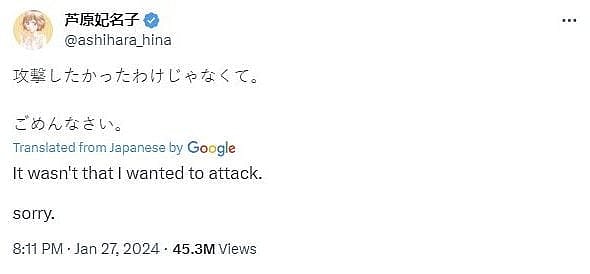
Speaking out in the hopes of preventing any future such tragedies, Morikawa took to his personal Twitter account on January 31st to reveal that, like Ashihara, he had also been subject to such studio mistreatment while working on the anime and stage adaptations of Hajime no Ippo.
“When I first started serializing Hajime no Ippo, I was approached by a number of companies about an anime or movie rather soon after the series started,” he stated. “I wasn’t interested in those things at all, so I kept turning them down. About 10 years later, a company came to see me with a large group of people, and I nodded to their enthusiasm and offered them a condition: ‘Please don’t disappoint the readers who have bought 40 volumes of the manga.’ “
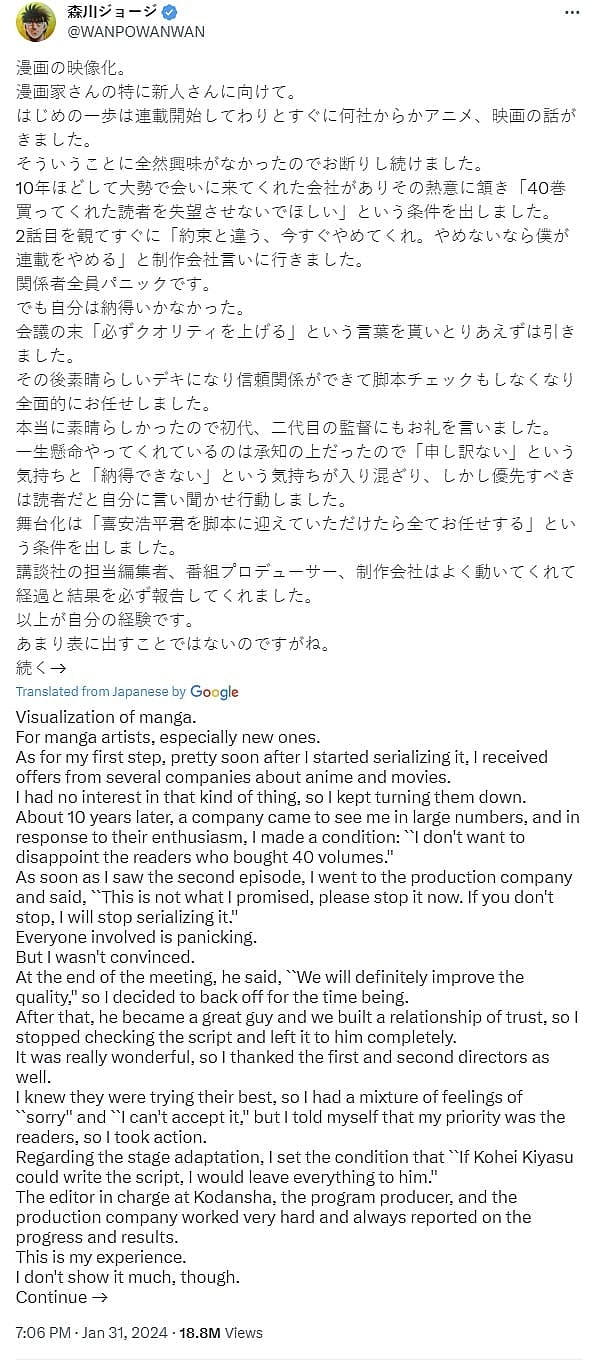
Morikawa then confessed that upon seeing just how far the anime adaptation’s second episode deviated from his original story, he proclaimed to the series’ production team “‘That’s not what you promised, stop now. If you don’t stop, I will stop the serialization.'”
“Everyone involved was in a panic,” he recalled. “But I was not satisfied.”
However, his speaking out ultimately paid off, as after threatening to cancel Hajime no Ippo‘s serialization, “I was assured that they would improve the quality of the work, and I backed off for the time being. After that, the work turned out great, and we developed a relationship of trust, so I stopped checking the script and left it entirely in their hands.”
“I thanked the first and second directors for their hard work,” geadded. “I knew they were doing their best, so I felt a mixture of ‘I’m sorry’ and ‘I can’t accept it,’ but I told myself that the priority was the readers, and I acted accordingly. I gave them the condition that if they would accept Kohei Kiyasu as the scriptwriter, I would leave everything to him. The editor in charge at Kodansha, the program producer, and the production company worked very hard and always reported back to me on the progress and results. These are my experiences. I don’t want to reveal too much about it.”
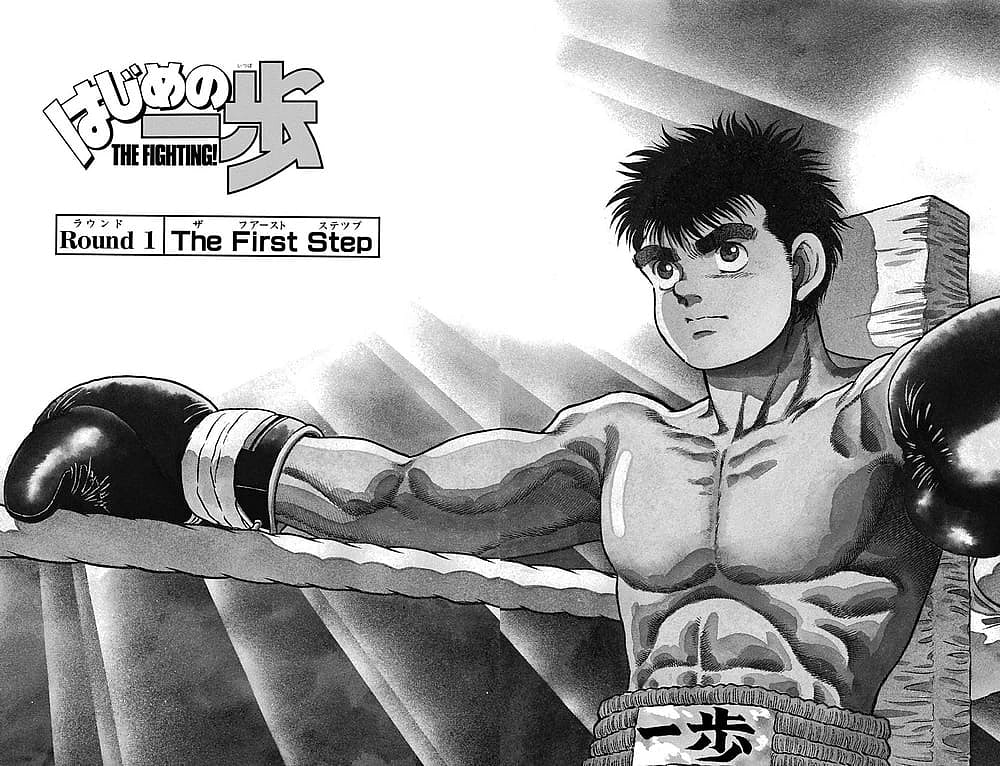
RELATED: Solo Leveling Manwha Artist Jang Sung-rak Passes Away After Long Battle With Chronic Illness
“It takes energy and courage to stop something that has started running,” Morikawa acknowledged. “I don’t even want to remember the heartache I went through. There are other examples, like the writer who really stopped the airing of an anime for two weeks because he didn’t agree with it. There was also the writer who voluntarily terminated the anime because it interfered with the serialization of his work. Or the one who went to court and won the case because he said the story was different from what he was told.”
“I am not saying that the original author is great,” he added. “However, only the author can protect the work and the readers, and he or she has the responsibility to do so. I hope that you will remember to respect and appreciate them, and express your opinions with dignity.”
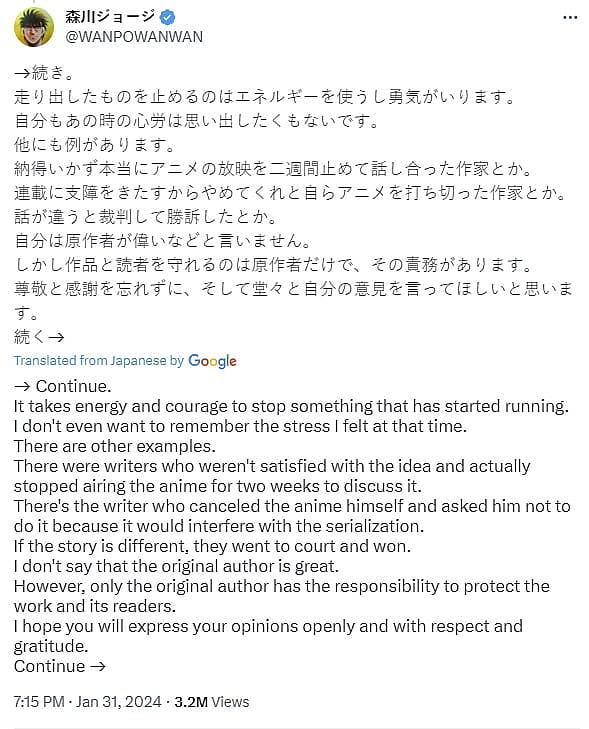
“There are many examples of successful adaptations and alterations of original works,” Morikawa continued. “It is also true that many writers look forward to seeing ‘how that part will be expressed.’ Once a relationship of trust was established, the same was true for me. There is a big difference in the production method between manga and video, and it is extremely difficult to keep the original work as it is.”
“I think the best way to achieve this is for everyone, including the original creator, to be involved with respect and gratitude,” he then posited. “As for the priority of gratitude, in the case of manga artists, it is overwhelmingly the readers. Please don’t forget that. This is my own subjective opinion, so please keep it as a reference.”

Morikawa concluded his thread by emphasizing “Visualization is one of the options to bring your work far and wide. It’s not a requirement.”

In a separate thread, the Hajime no Ippo mangaka expanded on his message to new and future mangaka, therein stressing to his followers, “I always said that the author is absolute, even if he or she is under fire. The rights of primary authors of novels, screenplays, and other works are guaranteed by law, not just manga artists. And the important thing is that only the original author knows the future. Therefore, it is absolute.”
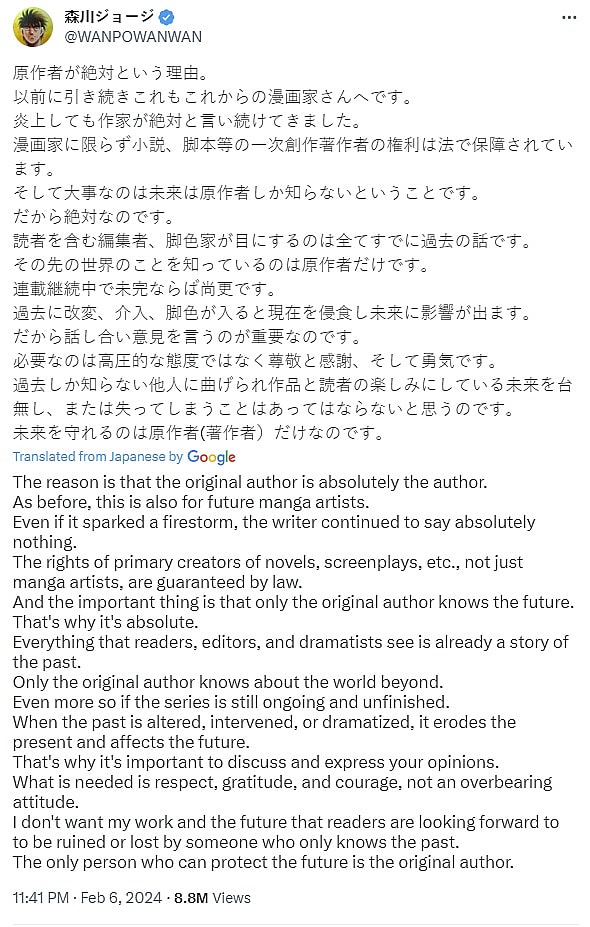
“Everything that editors and adaptors, including readers, see is already in the past,” he argued. “Only the original author knows what the future holds. This is even more true if the series is still ongoing and unfinished. Any alteration, intervention, or adaptation of the past will erode the present and affect the future. The future can be better after discussion, and the original author has the right to make choices such as refusing to make the media in the first place. This is also absolute.”
“That is why it is important to discuss and give your opinion,” the mangaka declared in follow-up. “What is needed is respect, gratitude, and courage, not an overbearing attitude. The future that the work and its readers look forward to should not be ruined or lost because of the bending of others who only know the past. Only the author can protect the future!”

“The future can be better after discussion, and the original author has the right to make choices such as refusing to make the media in the first place,” Morkawa continued, “This is also absolute. I may have sounded judgmental and arrogant, but what I have written is my own personal opinion, and I am not presuming that I am right about everything. I hope that when you encounter trouble, you will remember that there were people who said such and such. I wrote that the only one who can protect you is the original author, but no matter how strong your grip on the rights is, it’s still a little scary. Don’t make me fight alone.

Addressing the demands from concerned fans that the Manga Artists Association, of which he is an executive director, take some sort of action to prevent such future abuses, Morikawa stressed that the association “is not a pressure group. and it is hard to know how and where to approach them, and they are too big and not fast enough.”
“However, there are some board members who have voiced their opinions and are discussing ways to deal with the situation,” he concluded. “If you have any concerns, please feel free to contact the secretariat.”

In response to Morikawa’s tweet, UQ Holder! mangaka and fellow Association executive director Ken Akamatsu to further clarify, “As well as this, many people have said that they would like us as members of the ruling party to put pressure on private companies, but we cannot do that. However, some directors of the Manga Artists Association are discussing this and I will be meeting with several top publishers later in the meeting, so naturally this will come up.”

